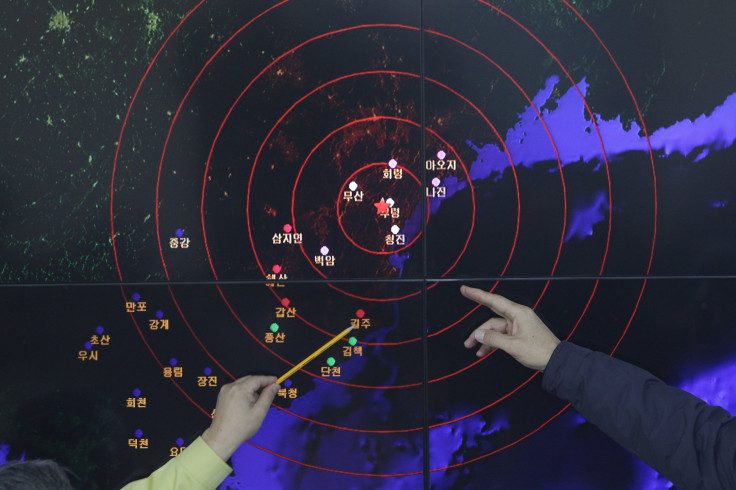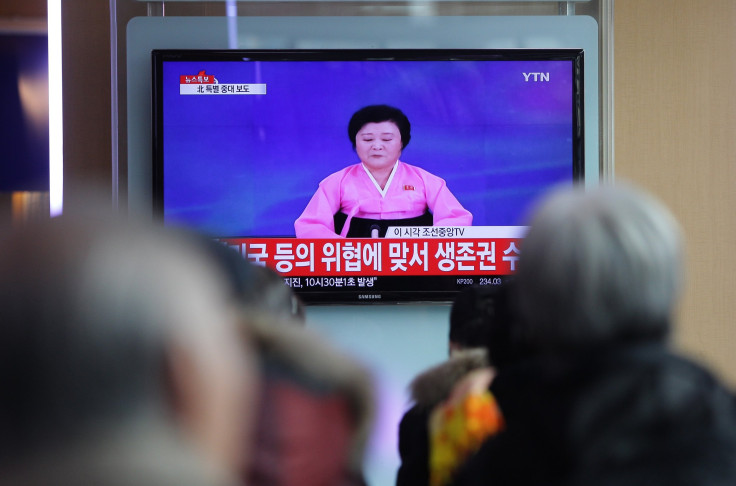Lack of International Nuclear Oversight In North Korea Raises Questions About Cooperation With Iran

North Korea set diplomatic tongues wagging with its boast of successfully detonating a hydrogen bomb Wednesday, but nuclear scientists remain skeptical of Pyongyang's explosive claims. Seismological data from the impact, experts say, indicates the bomb was similar in size to the country’s previous nuclear test, which it did not claim was the result of a hydrogen bomb. But uncertainty remains since there is no international oversight of the pariah state's nuclear program and no real intelligence on the threat it poses to the region.
“No evidence of hydrogen in the bomb has yet been found and this almost certainly will never happen,” said Robert Kelley, a fellow at the Stockholm International Peace Research Institute, in an interview with a German newspaper. Kelley is a former inspector with the International Atomic Energy Agency, the U.N. body that overseas countries’ nuclear programs. “North Korea is known to exaggerate and even lie.”
However, a lie or exaggeration is no guarantee that the nuclear threat posed by North Korea is reduced, Kelley told International Business Times. The last scientist to gain unfettered access to North Korea’s nuclear sites, American scientist Sig Hecker of Stanford University, reported that the country had “enhanced its nuclear capacity significantly” and was well on its way to developing a bomb. That development was only possible with cooperation from Iran, which was also developing its nuclear program, according to a report published by the Congressional Research Service. The two countries obtained designs and materials related to uranium enrichment from a clandestine procurement network run by former Pakistani nuclear official Abdul Qadeer Khan, the report said, although there is no concrete evidence that Iran and North Korea are still working together and most likely no longer need the other’s help, the CRS report added.
Hecker, in his 2010 report, described Pyongyang's method of uranium enrichment as a "game-changer." Overhead imagery, which Hecker had access to, showed that the exterior of the reactor was complete, and that the size of the centrifuge hall had doubled. The Stanford scientist saw 2,000 modern centrifuges, and the beginning of the construction of an experimental light water reactor.

“We know the program [in North Korea] is continuing and that they may be making some scientific advances that could lead to more explosive yield, or, more likely, more efficient bombs,” Kelley said. “That is the real impact.”
North Korea poses a major threat to South Korea and possibly Japan, Kelley told IBT. "[North Korea could] annihilate Seoul in hours [and could] probably hit Hawaii and Alaska with existing missiles under development.”
Kelley admits it's in part a guessing game to determine the true nature of North Korea’s nuclear program, and its cooperation with Iran, since the country is no longer part of the Nuclear Nonproliferation Treaty, which is designed to prevent the spread of nuclear weapons and weapons technology. Pyongyang withdrew from the treaty in 2003, claiming national security concerns.
What the world knows about North Korea’s nuclear weapons program is based on information obtained during its time under the treaty and during Hecker’s inspections.
The country’s program is based on plutonium produced in a nuclear reactor located at Yongbyon in addition to a gas centrifuge uranium enrichment program. North Korea tested nuclear explosive devices in October 2006, May 2009, and February 2013: The first device contained plutonium but it is unclear if the last three devices contained hydrogen.
In order to determine the nature of the device, it would need to emit materials that could be studied by investigators, Kelley said. The last three devices did not vent gases that could be used to identify the type of fissile material used in the explosive device.
US Fears
U.S. officials have expressed their fears that North Korea's nuclear test could unduly influence the actions of Iran, given its historically close relationship with the country.
GOP presidential candidate Ted Cruz said Wednesday the North Korea incident is an example of what will happen with Iran and underscores the need to reverse Iranian nuclear deal that the Obama administration finalized earlier this year.
But experts think such worries are unwarranted: the nuclear development of North Korea does not necessarily correlate to that of Iran. Kelley said the two countries likely have vastly different nuclear capabilities than they did two decades ago and cooperation is minimal.
© Copyright IBTimes 2024. All rights reserved.





















